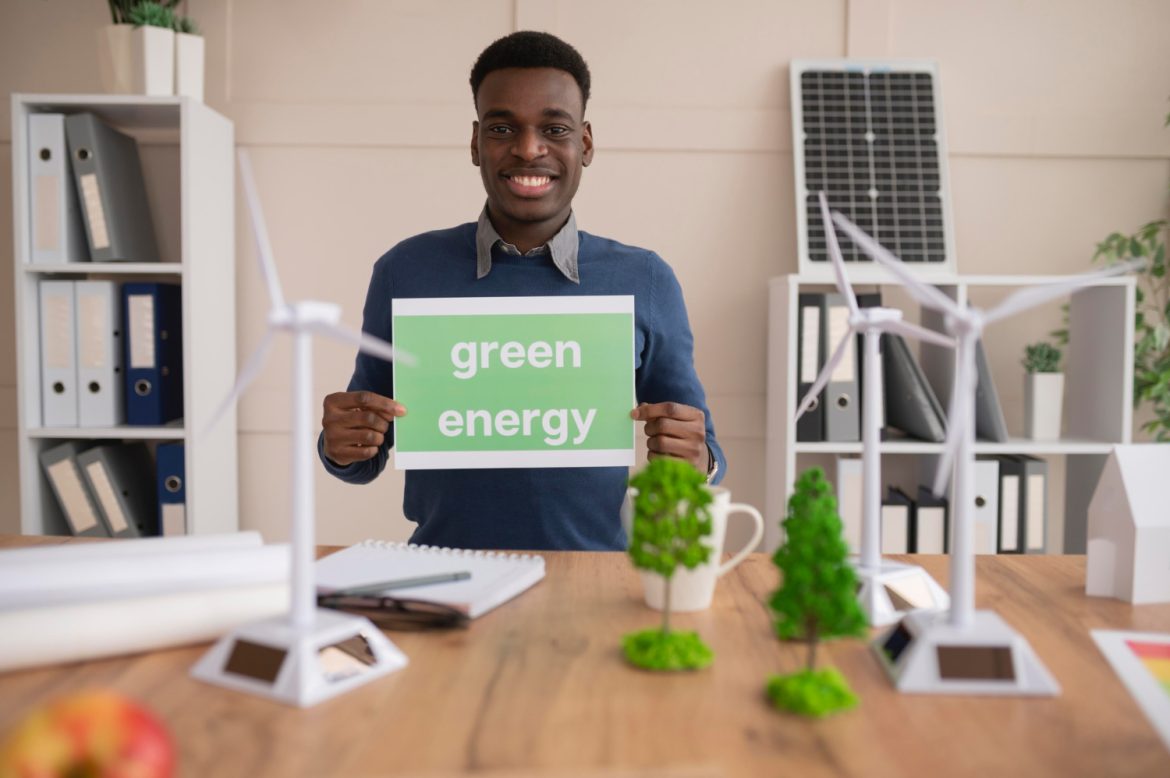KEY POINTS
- Africa’s abundant renewable energy resources position it as a global hub for green hydrogen.
- Challenges include high costs, infrastructure gaps, and regulatory hurdles.
- Strategic investments and regional collaboration can unlock green hydrogen’s potential.
With countries worldwide targeting a reduced emission of carbon in their efforts towards the green energy economy, green hydrogen is gaining traction as a solution to the carbon emission problem.
This greener transport fuel derived from renewable power such as wind and solar energy is a potential way of achieving a carbonless future in Africa
If well exploited, this potential can revolutionize Africa’s energy market transform the continent’s economy, and contribute to global decarbonization efforts.
The importance of green hydrogen in today’s world
Green hydrogen is generated through a process called electrolysis, that involves running electricity from renewable sources through water to generate hydrogen and oxygen.
The end physical product is a clean fuel that can power industries, store energy for several years and assist in dealing with fossil fuels.
Experts from the International Energy Agency (IEA) predict that by 2050, green hydrogen could supply as much as 10 percent of the world’s energy needs, making it an essential part of global plans to combat climate change.
Besides being an environmental advantage, green hydrogen in Africa goes with other major problems that need solutions, such as energy deficit and underdevelopment.
Africa’s competitive edge in the green hydrogen race
Africa’s wealth of renewable energy sources makes it a prime candidate to lead the global green hydrogen market.
With abundant sunshine and steady winds, countries like Namibia, South Africa, and Morocco have already begun investing in ambitious hydrogen projects.
Namibia, for instance, is building one of the world’s largest green hydrogen facilities, with an expected annual production capacity of over 300,000 tons. Such projects demonstrate Africa’s readiness to take on a prominent role in the clean energy sector.
Geography also plays to Africa’s advantage. The continent’s proximity to major markets in Europe and Asia positions it as a strategic supplier of green hydrogen.
Morocco, for example, has partnered with the European Union to export hydrogen, taking advantage of its closeness to European consumers.
In addition to potential environmental benefits, people operating and investing in green hydrogen stand to gain a lot economically. These endeavours will create millions of the employment opportunities in the sectors such as construction, manufacturing and renewable energy.
According to a study by the African Development Bank, investments in green hydrogen projects has the potential of adding billions of dollars to Africa’s GDP by 2035, firmly establishing the continent as a leader in sustainable growth.
Challenges to scaling green hydrogen in Africa
However, there are a number of barriers that Africa has to overcome in order to advance its green hydrogen industry.
First, the physical assets such as the pipelines necessary to produce and export vast volumes of Hydrogen are capital-intensive to develop, something that most countries lack the capital to accomplish.
Another major issue can be cited with reference to logistics. At the moment, Africa has no adequate transportation and storage system suitable for huge green hydrogen generation.
Additionally, the absence of clear policies and regulatory frameworks in many African nations discourages private-sector investment. Governments need to establish guidelines and incentives, such as tax breaks and subsidies, to attract capital and expertise to the sector.
Steps toward a green hydrogen revolution
Unlocking Africa’s green hydrogen potential requires strategic action and collaboration.
The first is the development of renewable energy as the muse for hydrogen production starting with solar and wind energy technologies.
The funding can be obtained from international organisations and from private investors such that inadequate finances alone cannot hinder the commencement of a project.
Policy reform is also important. Governments need to encourage investment by putting measures that address the complications of the laws and establish policies that enhance renewable energy businesses.
Such actions as the creation of African Green Hydrogen Alliance and promoting solidarity of specific policies throughout the African continent are key to maintaining coherence in development.



